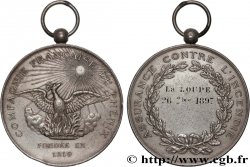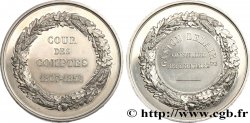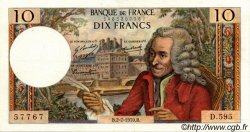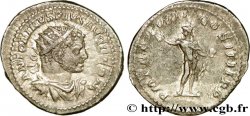Back 1/1
fme_681724 - III REPUBLIC Médaille, Prix de vertu du baron de Montyon
80.00 €(Approx. 86.40$ | 68.80£)
Quantity
Add to your cart

Type : Médaille, Prix de vertu du baron de Montyon
Date: 1929
Metal : bronze
Diameter : 51,5 mm
Orientation dies : 12 h.
Engraver GAYRARD Raymond (1777-1858)
Weight : 61,69 g.
Edge : lisse + Corne BRONZE
Puncheon : corne BRONZE
Coments on the condition:
Patine hétérogène avec les traces de nettoyage. Traces de manipulation. Présence de coups et rayures, notamment sur la tranche
Obverse
Obverse legend : ANTOINE JEAN BAPTISTE - ROBERT AUGET DE MONTYON.
Obverse description : Buste à gauche du baron de Montyon, signé : GAYRARD F..
Reverse
Reverse legend : ACADÉMIE / FRANÇAISE / - / PRIX DE VERTU / - / LE MARTINET / SUZANNE / - / 1929.
Reverse description : Légende en 6 lignes dans une couronne de lauriers.
Commentary
Exemplaire décerné à Suzanne Le Martinet en 1929.
Antoine-Jean-Baptiste-Robert Auget, baron de Montyon, est un philanthrope et économiste français, né le 23 décembre 1733 à Paris et mort le 29 décembre 1820 dans la même ville.
Le prix de vertu est encore décerné aujourd'hui mais les sommes attribuées sont devenues extrêmement minimes, cependant, une des clauses du testament du fondateur exige que tous les ans, il soit fait « lecture d'un discours qui contiendra l'éloge d'un acte de vertu ». Ainsi depuis 1819, un membre de l'Académie française se livre annuellement au délicat exercice consistant à faire l'éloge des lauréats vertueux et des vertus en général, prétexte pour réfléchir aux mœurs de son temps. C'est donc un tableau particulièrement original de l'histoire des mœurs que l'on peut découvrir à travers les discours prononcés par François Guizot, Alexis de Tocqueville, Thierry Maulnier, Jean Guitton, François Mauriac ou Erik Orsenna. Sans oublier Paul Valéry..
Antoine-Jean-Baptiste-Robert Auget, baron de Montyon, est un philanthrope et économiste français, né le 23 décembre 1733 à Paris et mort le 29 décembre 1820 dans la même ville.
Le prix de vertu est encore décerné aujourd'hui mais les sommes attribuées sont devenues extrêmement minimes, cependant, une des clauses du testament du fondateur exige que tous les ans, il soit fait « lecture d'un discours qui contiendra l'éloge d'un acte de vertu ». Ainsi depuis 1819, un membre de l'Académie française se livre annuellement au délicat exercice consistant à faire l'éloge des lauréats vertueux et des vertus en général, prétexte pour réfléchir aux mœurs de son temps. C'est donc un tableau particulièrement original de l'histoire des mœurs que l'on peut découvrir à travers les discours prononcés par François Guizot, Alexis de Tocqueville, Thierry Maulnier, Jean Guitton, François Mauriac ou Erik Orsenna. Sans oublier Paul Valéry..








 Report a mistake
Report a mistake Print the page
Print the page Share my selection
Share my selection Ask a question
Ask a question Consign / sell
Consign / sell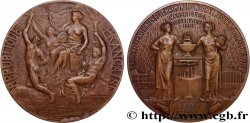
 Full data
Full data